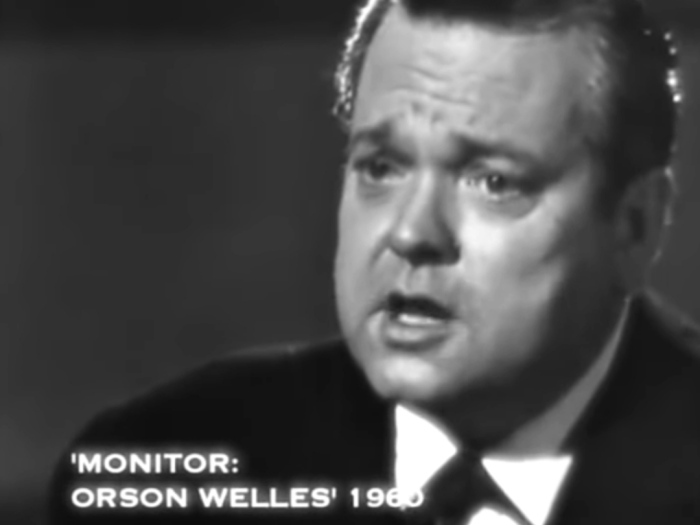“A film is never really good unless the camera is an eye in the head of a poet.” – Orson Welles
In a 1960 interview with Orson Welles, renowned for his iconic film ‘Citizen Kane,’ he provides valuable insights on conquering fear, handling critique, and harnessing the power of ignorance. Led by the remarkable guidance of Huw Wheldon, the host of Monitor – the BBC’s flagship arts programme Series, Welles shares his wisdom on embracing exploration, overcoming limitations, and using the virtue of ignorance as a catalyst experimentation for excellence in the creative process:
Q: “What I’d like to know is where did you get the confidence from to make the film with such…”
A: “Ignorance. Ignorance. Sheer ignorance. You know, there’s no confidence to equal it. It’s only when you know something about a profession, I think, that you’re timid, or careful or”
Q: “How does this ignorance show itself?”
A:”I thought you could do anything with a camera that the eye could do or the imagination could do. And if you come up from the bottom in the film business, you’re taught all the things that the cameraman doesn’t want to attempt for fear he will be criticised for having failed. And in this case I had a cameraman who didn’t care if he was criticised if he failed, and I didn’t know that there were things you couldn’t do, so anything I could think up in my dreams, I attempted to photograph.”
Q: “You got away with enormous technical advances, didn’t you?”
A: “Simply by not knowing that they were impossible. Or theoretically impossible. And of course, again, I had a great advantage, not only in the real genius of my cameraman, but in the fact that he, like all great men, I think, who are masters of a craft, told me right at the outset that there was nothing about camerawork that I couldn’t learn in half a day, that any intelligent person couldn’t learn in half a day. And he was right.”
Q: “It’s true of an awful lot of things, isn’t it?”
A: “Of all things.”
I invite you to reflect on how we can adapt to this, it is evident that Orson Welles’ interview offers profound insights. His perspectives on embracing autonomy over money, handling critique, and leveraging ignorance as a catalyst for growth are invaluable lessons for anyone in the creative field and beyond. Welles’ wisdom serves as a reminder that true excellence is achieved by stepping outside our comfort zones, embracing challenges, and continuously pushing the boundaries of our craft. True inspiring words that guides us on your own journey of exploration, self-improvement, and artistic achievement.
